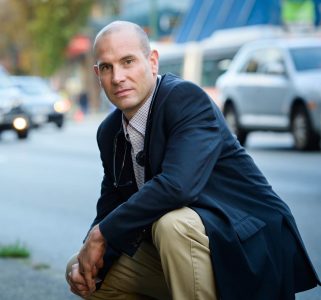
Tell us about the current work you’re doing related to precision health?
My lab, the Air Pollution Exposure Laboratory, studies how common pollutants, alone or in various combinations, affect the lungs. Our team uses this state-of-the-art to expose human subjects to multiple pollutants (diesel exhaust, woodsmoke, allergens, phthalates) safely at precise and well-characterized concentrations. We test interventions, both medications and technologies such as air filters. We then focus on effect modification analysis, allowing us to see the ways in which pollution affects individuals particularly based on age, sex, genetics, underlying disease, and other personal characteristics. This allows us to inform individuals, communities, and associated regulatory agencies regarding the hazards and protections needed for those most susceptible to these threats.
Why is precision health such an important field for research?
Precision health is about moving beyond the “one size fits all” approach in our approach to maximizing health across a lifetime. In precision health, personalized tailored solutions are created by considering an individual’s differences in various aspects such as their medical conditions, sex, age, socioeconomic status, and environmental factors. Whether for prevention or treatment, precision health ultimately shows respect for the individual – or groups of similar individuals – by saying ‘we know you are unique and, when possible, we will build a plan for you based on who you are and also where and how you live’. For example, in my team’s research on preventing exacerbations of asthma, tailoring recommendations for asthmatics in terms of inhaled medications during high pollution events (such as when summer wildfires hit our province), based on a given asthmatic’s genetic profile, was cost-effective. Therefore, a precision health approach – in this case through a preventive lens – can benefit both the person at risk and also the system that supports her. Research is absolutely essential to revealing these benefits.
What do you think is the single most exciting future direction in precision health?
Intersectionality, and the interdisciplinary work and stakeholder engagement needed to address it, is what inspires me most about the future of precision health. Social and biomedical science points clearly to how health results from a complex set of forces, from the most basic of chemistry and physiology, to those cultural, societal and environmental. Furthermore, we have seen that by including the individuals and communities affected by these forces, especially in advance of disease being firmly established, our solutions are smarter and more feasibly implemented. By working together in ways we previously hardly thought possible, we can apply precision health to contexts and scenarios not previously envisioned and empower health far beyond those traditionally considered.
About Chris Carlsten, MD, MPH
Dr. Chris Carlsten is a Professor of Medicine, and Head of the Respiratory Medicine Division at the University of British Columbia (UBC). Dr. Carlsten holds the Astra-Zeneca Chair and is the Canada Research Chair in Occupational and Environmental Lung Disease. He is the Director of the Air Pollution Exposure Laboratory and of Legacy for Airway Health, and the Precision Health Lead at UBC Faculty of Medicine. He also holds positions at the Peter Wall Institute for Advanced Studies, the UBC School of Population and Public Health and the Centre for Heart Lung Innovation.
Dr. Carlsten attended undergraduate and medical school at Stanford University before training in internal, occupational, pulmonary and critical care medicine at the University of Washington. He is an active respirologist, welcoming patients with concerns regarding occupational or environmental exposures contributing to respiratory disease including rhinitis, asthma, COPD, and interstitial lung disease.